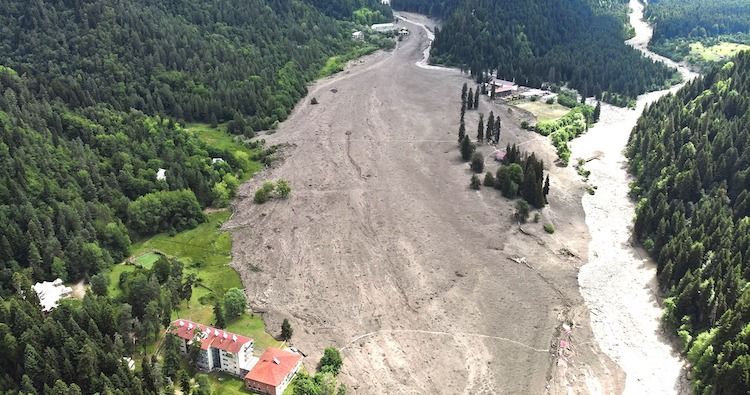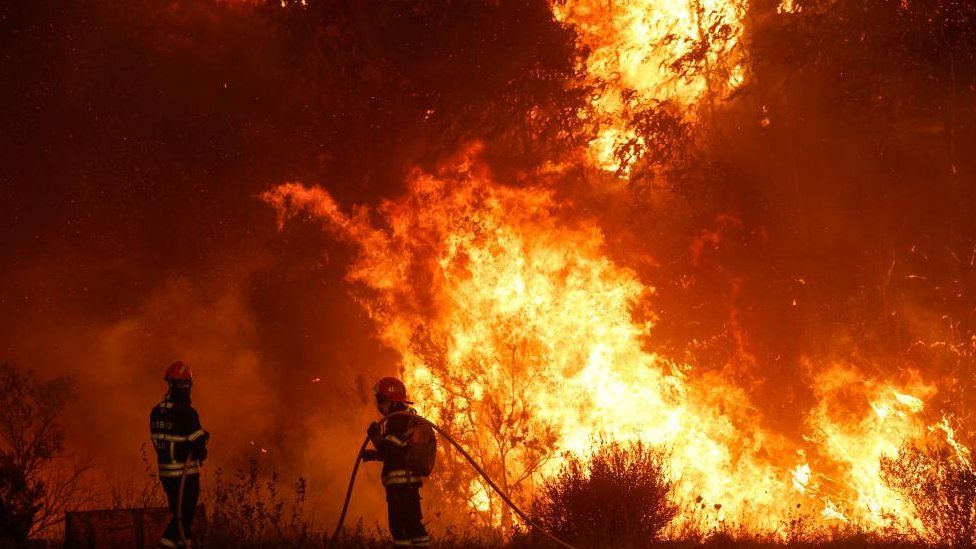Washington’s Undemocratic Military Offspring
The military takeover in Niger is the latest example of U.S.-trained officers overthrowing a democratic government. Brig. Gen. Moussa Salaou Barmou, the chief of Niger’s Special Operations Forces and one of the leaders of the coup, received training at both Fort Benning, Georgia, and the National Defense University in Washington, D.C. The events in Niger are not an isolated incident. Analysts at the Intercept confirm that U.S.-trained officers have taken part in 11 coups just in West Africa since 2008.
Moreover, the Nigerian military was a prominent U.S. client overall. Since 2012, Washington has spent more than $500 million in Niger – one of the largest U.S, security assistance programs in Africa. The New York Times notes that “Until this past week, Niger was the cornerstone of the Pentagon’s regional strategy. At least 1,100 American troops are stationed in the country, where the U.S. military built multiple drone bases” to attack radical Islamist factions.
For decades, U.S. leaders have contended that Washington’s training of and close ties with militaries in foreign countries have helped strengthen support for civilian rule and democratic values in those client states. In 2022, Maj. Gen. Andrew M. Rohling, the commander of U.S. Army Southern European Task Force, Africa, insisted that the Pentagon’s objective always has been to “showcase a way, the American way, that we train and build leaders not only in their tactical tasks, but in the ethos of the United States Army.”
Even if strengthening democratic values among foreign officers has been the intent of the U.S. military – and there are ample reasons to doubt that claim – the record indicates that the effort has failed. The latest cases of officers who had received U.S. military training going on to stage an epidemic of coups in Africa is reminiscent of the long, odious history of the School of the Americas (SOA). The U.S. Army established that training center in 1946 at Fort Benning, not only to provide instruction in state-of-the-art military tactics, but to educate officers from countries in Latin America about the importance of democratic values and civilian control of the military.
The results were appallingly bad. A December 2000 ABC News story by investigative reporter Barbara Starr noted that “The list of graduates from the School of the Americas is a who’s who of Latin American despots.” Alumni “included Manuel Noriega and Omar Torrijos of Panama, Leopoldo Galtieri of Argentina, and Hugo Banzer Suarez of Bolivia.”
There is one other troubling similarity between the developments in Latin America during the Cold War and the current stance of the U.S. military regarding Africa. In the former case, U.S. military leaders were so concerned about the communist threat that they were willing to look the other way as their Hemispheric partners unseated democratic governments and committed human rights abuses. Fear regarding the strength of Islamic extremism in Africa now appears to have reached the point that the Pentagon seems content to do the same. The apparent indifference of the U.S. military hierarchy to rogue behavior by African alumni of U.S. training programs is more than a little troubling.
The posture of the U.S. military leadership also is symptomatic of the overall attitude of Washington’s policymaking elites. Despite the abundance of U.S. rhetorical support for democracy around the world over the decades, U.S. conduct tells a very different story. Frequently, the choice has been between interacting with friendly autocrats or unpredictable (perhaps even uncooperative) democratic factions. U.S. administrations have consistently preferred to deal with friendly autocrats.
That tendency was especially pronounced during the Cold War, but it has not disappeared during the post-Cold War era. Washington’s reaction to developments in Egypt during Barack Obama’s administration confirmed the trend. In 2011, demonstrators overthrew the dictatorship of longtime U.S. client (and former general) Hosni Mubarak. The first free elections in Egypt’s history followed, leading to victory by the Muslim Brotherhood and its leader, Mohamed Morsi, who became prime minister in June 2012. Barely a year later, Gen. Abdul Fattah al-Sisi led a coup that ousted Morsi.
Washington’s reaction to Sisi’s extinguishing a fledgling democracy that showed signs of being unfriendly to the U.S. foreign policy agenda was quite revealing. After a brief pause, the Obama administration lavished billions of dollars in both economic and outright military aid on the new regime. True, there have been perfunctory criticisms of the horrible human rights record that Sisi and his colleagues soon amassed, but the aid has continued to flow over the past decade. Average annual economic assistance has been $300 million, while annual military aid has been $1.3 billion. This largesse from U.S. taxpayers persists despite the reality that some 60,000 political prisoners languish in Gen. Sisi’s prisons and thousands more have been executed.
Given Washington’s chronic fondness for friendly military autocrats, we should not be surprised at the prominent role that graduates of U.S. military programs are playing in the wave of coups taking place across Africa. Those developments are entirely consistent with an amoral track record going back decades.
Ted Galen Carpenter is a senior fellow at the Randolph Bourne Institute and a senior fellow at the Libertarian Institute. He also served in various senior policy positions during a 37-year career at the Cato Institute. Dr. Carpenter is the author of 13 books and more than 1,200 articles on international affairs.







:quality(70)/cloudfront-eu-central-1.images.arcpublishing.com/thenational/R4LACVV4MRG55JOJJQQS7GUZRM.jpg)
:quality(70)/cloudfront-eu-central-1.images.arcpublishing.com/thenational/BPD3VVJ7GVM7AKVRCY745NY43Q.jpg)
:quality(70)/cloudfront-eu-central-1.images.arcpublishing.com/thenational/6IMY3RKXQ6VY6PPDL75MJVP6J4.jpg)

:quality(70)/cloudfront-eu-central-1.images.arcpublishing.com/thenational/G5WPNM4OEJVKRWP7J7S672VUNY.jpg)

